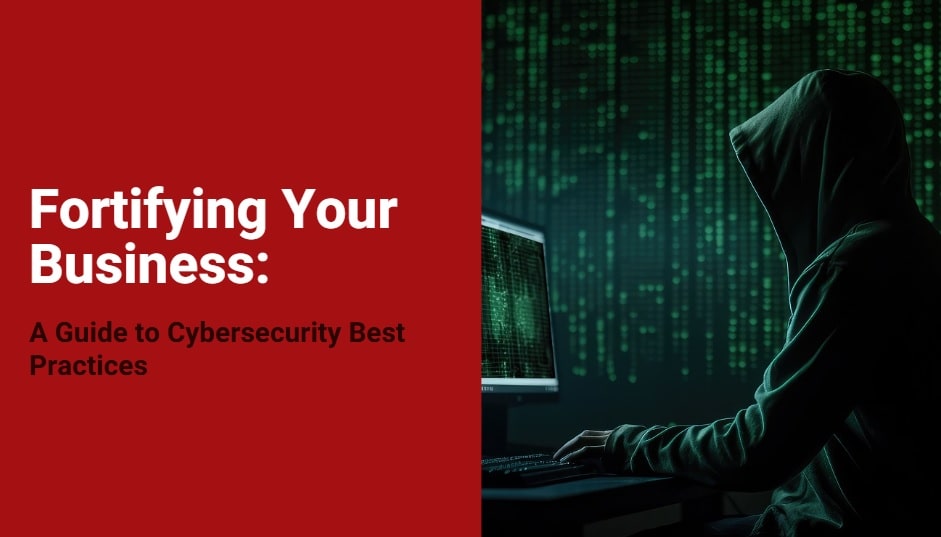In the modern business world, data is currency. The ever-increasing reliance on digital platforms has led to an exponential rise in data creation and collection, making cybersecurity best practices a crucial concern for businesses of all sizes and across industries. A single breach can lead to substantial financial loss, damage to the company’s reputation, and even legal repercussions. Thus, protecting your business against cyber threats is no longer optional. It’s an absolute necessity.
Table of Contents
Implementing robust cybersecurity measures requires understanding potential threats, assessing your business’s vulnerabilities, and developing a comprehensive strategy to counter these risks. It might seem daunting, but with the right practices and measures in place, you can significantly enhance your business’s resilience against cyber threats. Here’s a guide to help you navigate this important aspect of modern business operations.
Educate and Train Your Employees
Your employees are the first line of defense against cyber threats. Training them to recognize potential threats like phishing scams, ransomware, and other malicious activities is critical. Regular training sessions will keep them updated on the latest cyber threats and how to handle them effectively.
Implement Strong Password Policies
A strong password policy is a simple yet effective cybersecurity measure. Encourage employees to use complex, unique passwords and change them regularly. Multi-factor authentication adds an additional layer of security and should be implemented wherever possible.
Regularly Backup Data as Cybersecurity Best Practices
Backing up data regularly is crucial to safeguard against data loss. Ensure backups are carried out regularly and stored in a secure location. This measure provides a safety net in case of data breaches or accidental loss of data.
Engage the Services of SOC 2 Audit Firms
For businesses that store or process sensitive customer data, achieving SOC 2 compliance is crucial. SOC 2 audit firms can help ensure your data handling processes meet the high standards required for this certification. They evaluate your systems and controls across five principles. Such as security, availability, processing integrity, confidentiality, and privacy. Hence, employing their services ensures compliance, builds trust with your customers, and enhances your overall cybersecurity framework.
Keep Your Systems Updated
Regular updates to your software, systems, and devices are necessary to protect against new vulnerabilities and threats. Updates often include patches for security flaws that cybercriminals might exploit. Ensure automatic updates are enabled where possible and make system updates a part of your regular maintenance routine.
Have a Cyber Incident Response Plan as a Part of Cybersecurity Best Practices
In case a security breach does occur, having a comprehensive incident response plan in place can limit the damage. This should include steps for identifying and isolating the breach, notifying relevant parties, and initiating recovery measures. Regular drills can help ensure your team is prepared to respond quickly and effectively to incidents.
Consult with a Lawyer
While preventive measures are essential, it’s also crucial to understand the potential legal repercussions of a data breach. A criminal defense lawyer can provide guidance on local and federal laws concerning data privacy and the legal obligations of businesses in case of a breach. They can also help you prepare for potential legal issues and ensure that your response plan is legally sound.
Secure Your Wi-Fi Networks
Unsecured Wi-Fi networks provide an easy access point for cybercriminals. Ensure that your business Wi-Fi networks are secure, encrypted, and hidden. Implementing strong access controls and changing your Wi-Fi password regularly can also strengthen your network security.
Limit Employee Access to Information
Not every employee needs access to all your business’s information. Limiting access based on an employee’s role helps minimize the risk of internal breaches. Make sure to promptly revoke access for employees who leave the company. To empower information technology of your organisation, visit tentacle.co.
Monitor Network Traffic
Monitoring your network traffic can help identify unusual activity that may indicate a cyber attack. Hence, there are several network monitoring tools available for Cybersecurity Best Practices that can provide real-time visibility into your network traffic and alert you to potential threats.
Use Antivirus and Firewall Solutions
A reliable antivirus software is essential to protect your systems from malware. Also, make sure to use a firewall to block unauthorized access to your network. Both these solutions should be kept updated to effectively counter the latest threats.
Implement a Mobile Device Policy for Cybersecurity Best Practices
With the increasing prevalence of remote work and Bring Your Own Device (BYOD) policies, mobile devices can often be a weak point in a business’s cybersecurity. So, implementing a mobile device policy that outlines security measures such as password protection, encryption, and regular updates can help mitigate these risks.
Establish a Secure Configuration Standard
Ensuring that your systems are configured securely is another crucial step in safeguarding your business. This includes removing unnecessary software, disabling unnecessary services, regularly updating and patching systems, and managing administrative privileges. A secure configuration standard will guide your team in setting up and maintaining systems with security in mind.
Vet Third-Party Service Providers for Cybersecurity Best Practices
Your business’s security is only as strong as its weakest link, which could be a third-party service provider with access to your systems or data. It’s critical to vet any third-party providers for their security practices. Include security clauses in your contracts and periodically review their compliance.
In conclusion, fortifying your business against cyber threats involves a combination of awareness, proactive measures, and an effective response plan. By adopting these best practices and partnering with the right professionals, you can significantly reduce your business’s vulnerability to cyber threats. Remember, in the digital age, cybersecurity is not a one-time effort but a continuous process of adaptation and improvement. Your proactive approach can save your business from significant losses and ensure that it continues to thrive in a secure digital environment.

David is a dynamic, analytical, solutions-focused bilingual Financial Professional, highly regarded for devising and implementing actionable plans resulting in measurable improvements to customer acquisition and retention, revenue generation, forecasting, and new business development.















